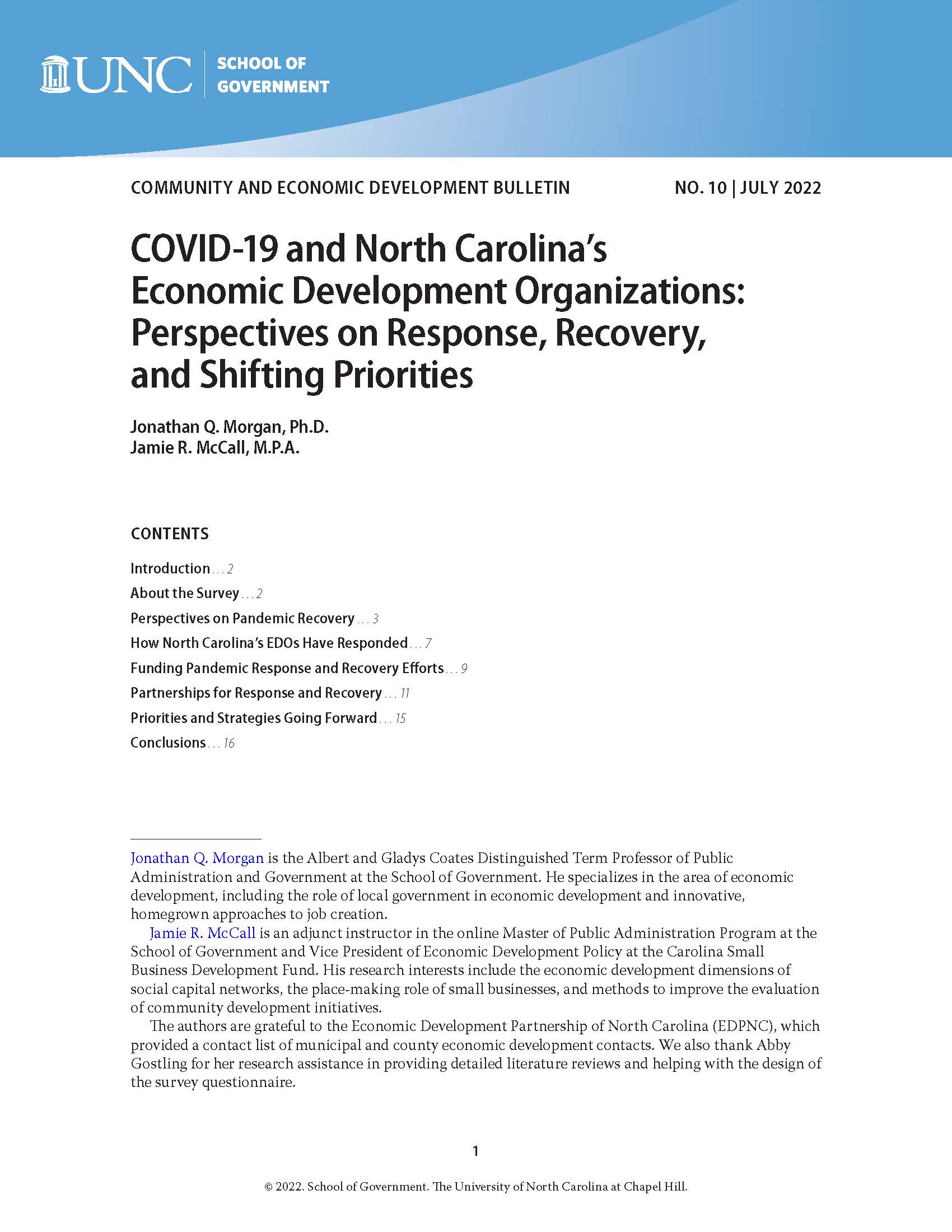Community and Economic Development Bulletin #10
COVID-19 and North Carolina's Economic Development Organizations: Perspectives on Response, Recovery, and Shifting Priorities
The COVID-19 pandemic has been an unprecedented and global public health crisis with consequences that continue to reverberate across local economies. Early on, the temporary closing of “non-essential” businesses and government mandated stay-at-home orders caused a massive disruption in economic activity. The acute economic shock cause resulted in record levels of unemployment and joblessness, altered business supply chains, and significantly reconfigured the workforce. In some ways the recovery has been as swift as the fallout – nationally, the recession induced by the pandemic lasted just two months and ended in April 2020.[i] Conversely, and at best, many segments of the economy and labor market have seen an uneven recovery. At this point, it is still unclear what the “new normal” will look like.
Economic development organizations (EDOs) have been instrumental in helping communities with their pandemic response and recovery efforts while continuing to advance development priorities. At the outset many EDOs worked with manufacturers to produce surgical masks, medical gowns, and other types of personal protective equipment (PPE) for frontline healthcare providers. Others helped companies increase the production of essential items like toilet paper and hand sanitizer, which were in short supply for most of 2020. And as the effects of the pandemic stretched from months to years, EDOs became deeply involved in a variety of response and recovery efforts. This array of initiatives included, for the first time, the provision of emergency grant aid to both individuals and businesses.
The future of economic and community development practice will be shaped by the experiences of EDOs in pandemic response and recovery efforts. To better understand the role of EDOs throughout the pandemic, this bulletin analyzes findings from a survey of North Carolina EDOs conducted in the fall of 2021. The results provide data about EDO pandemic strategies as well as insights on their development goals going forward.





